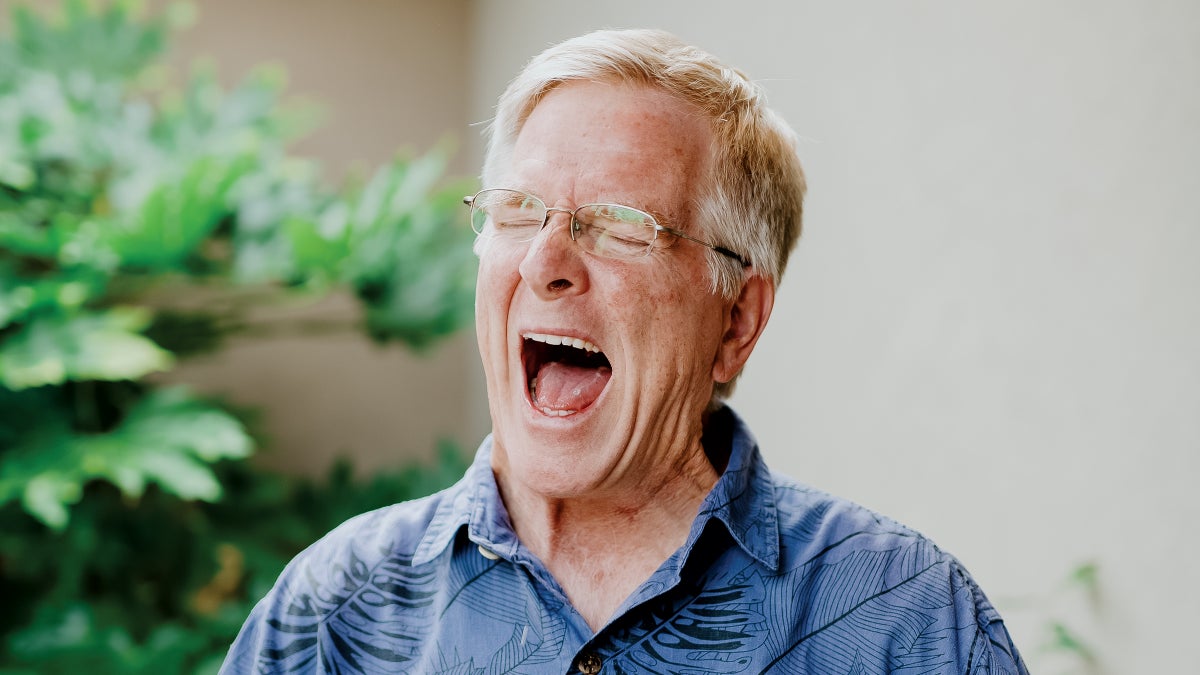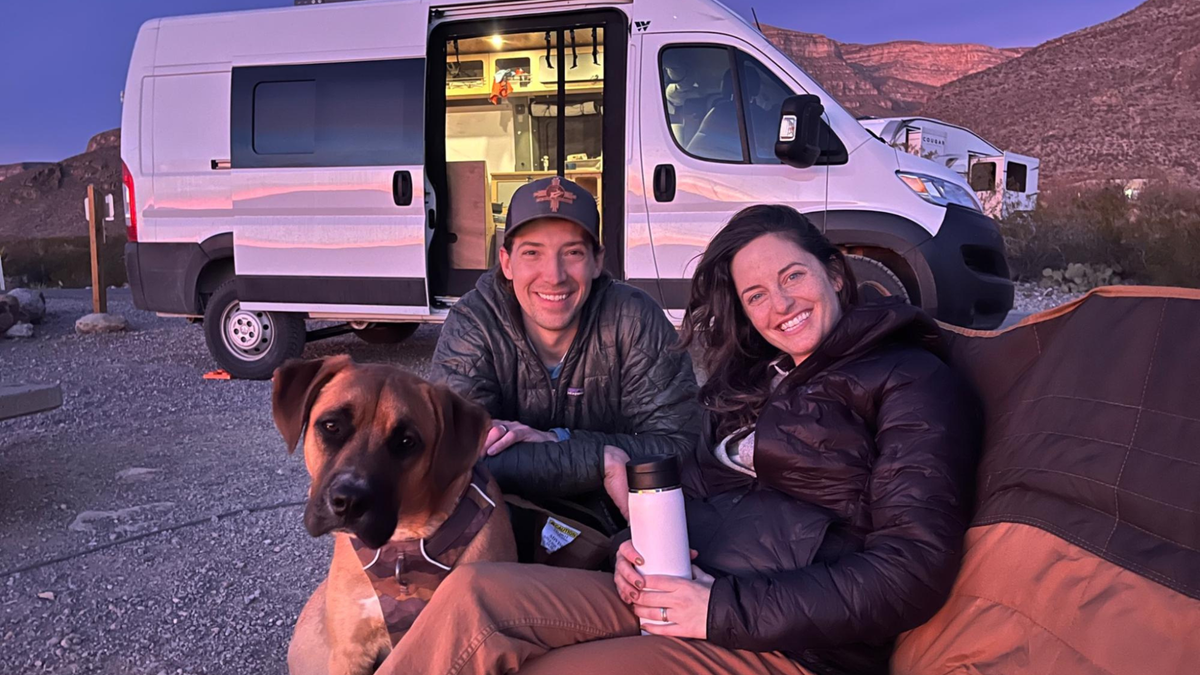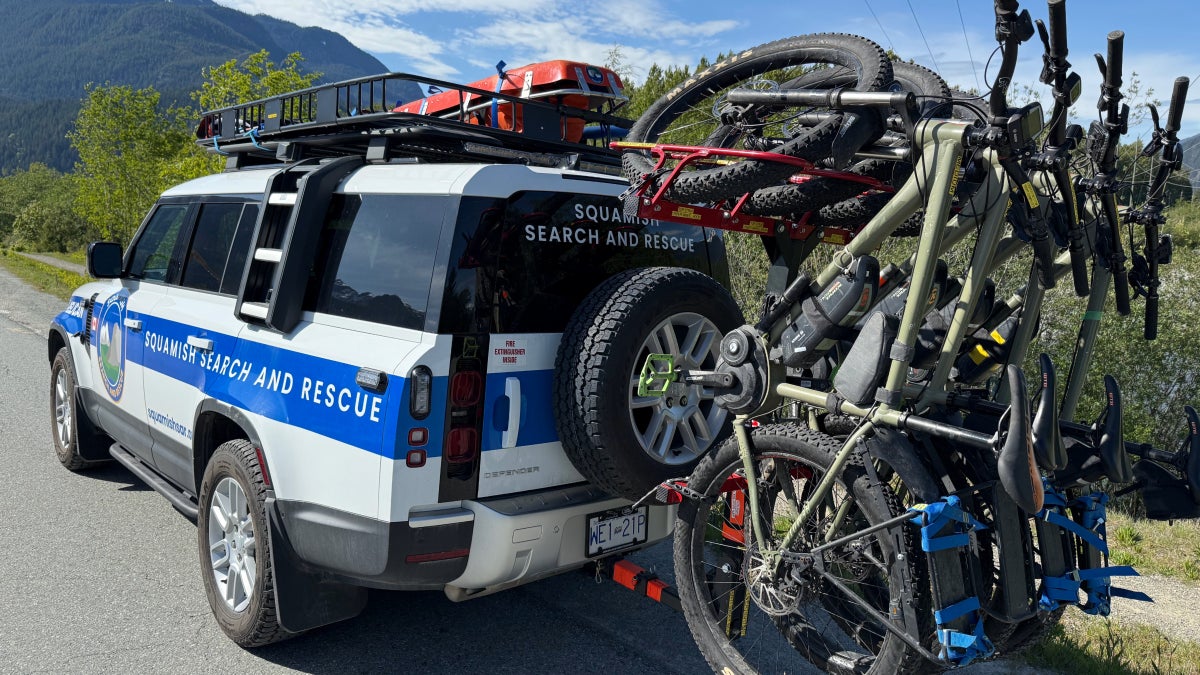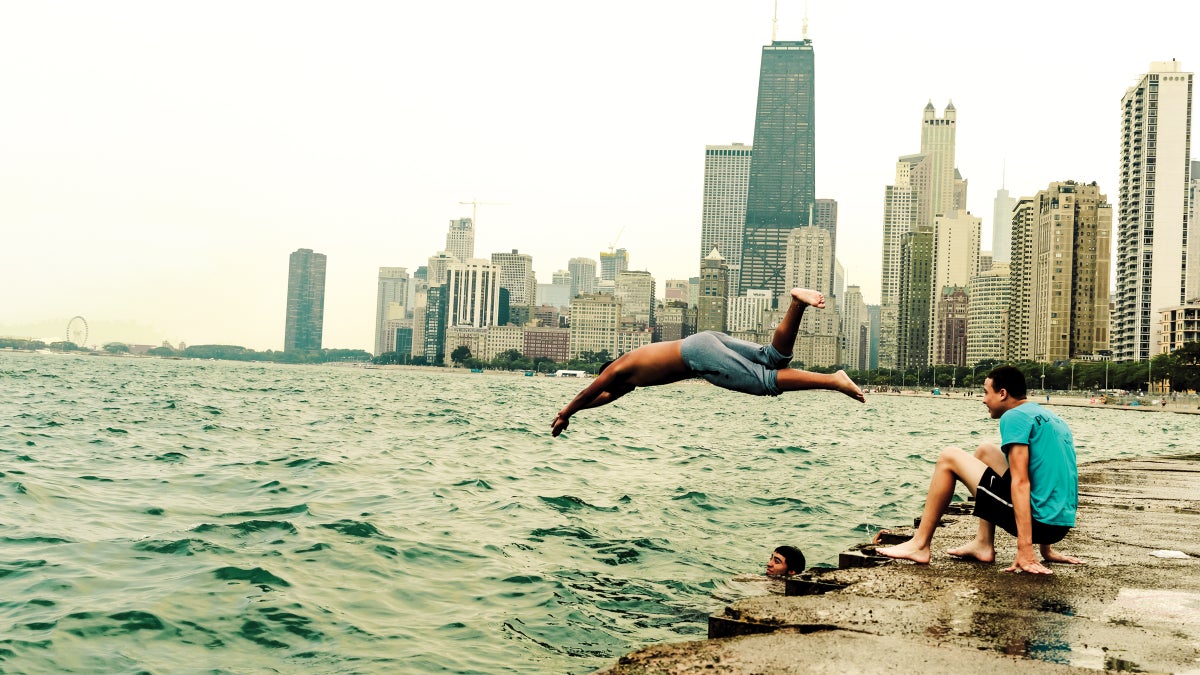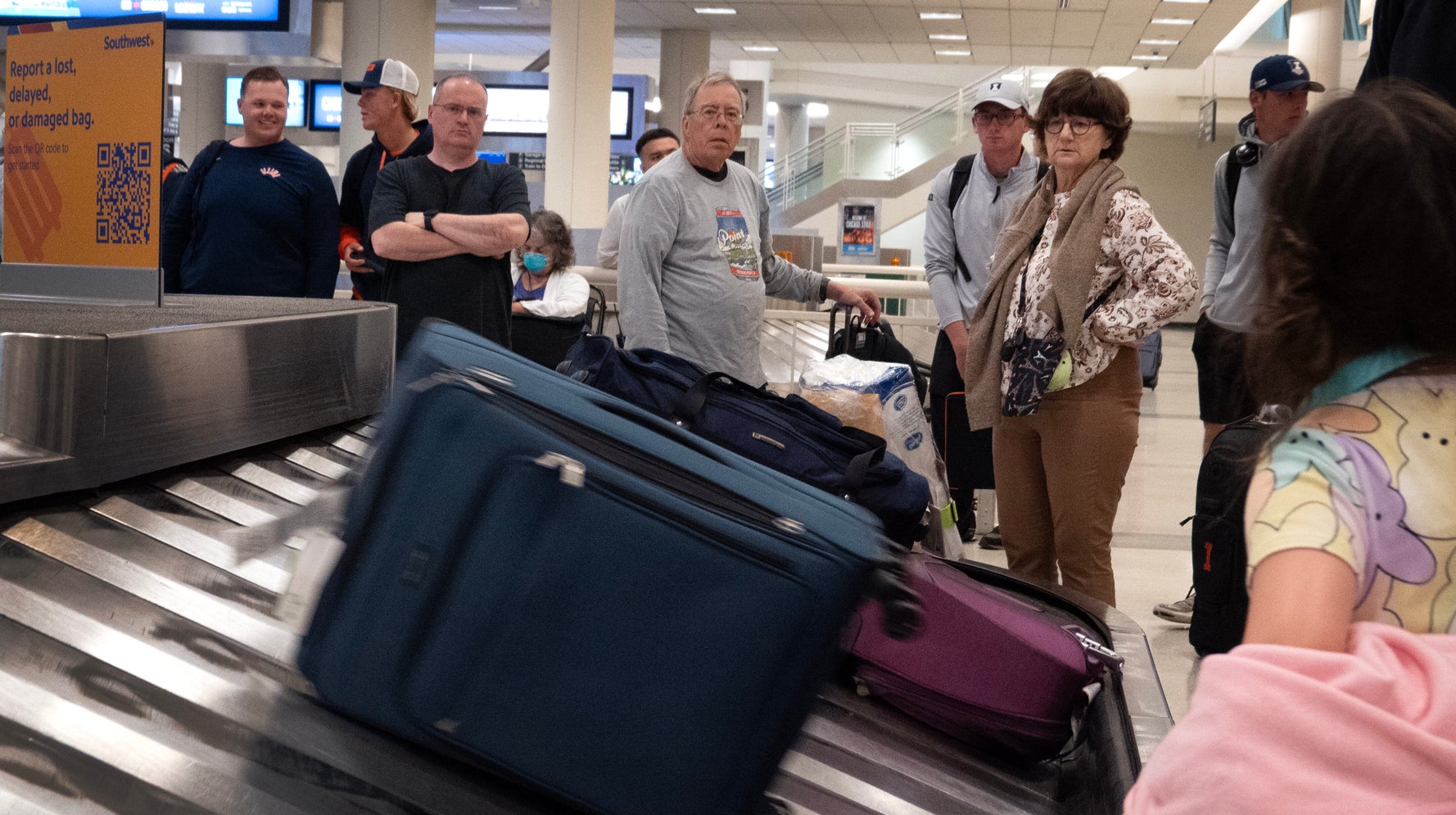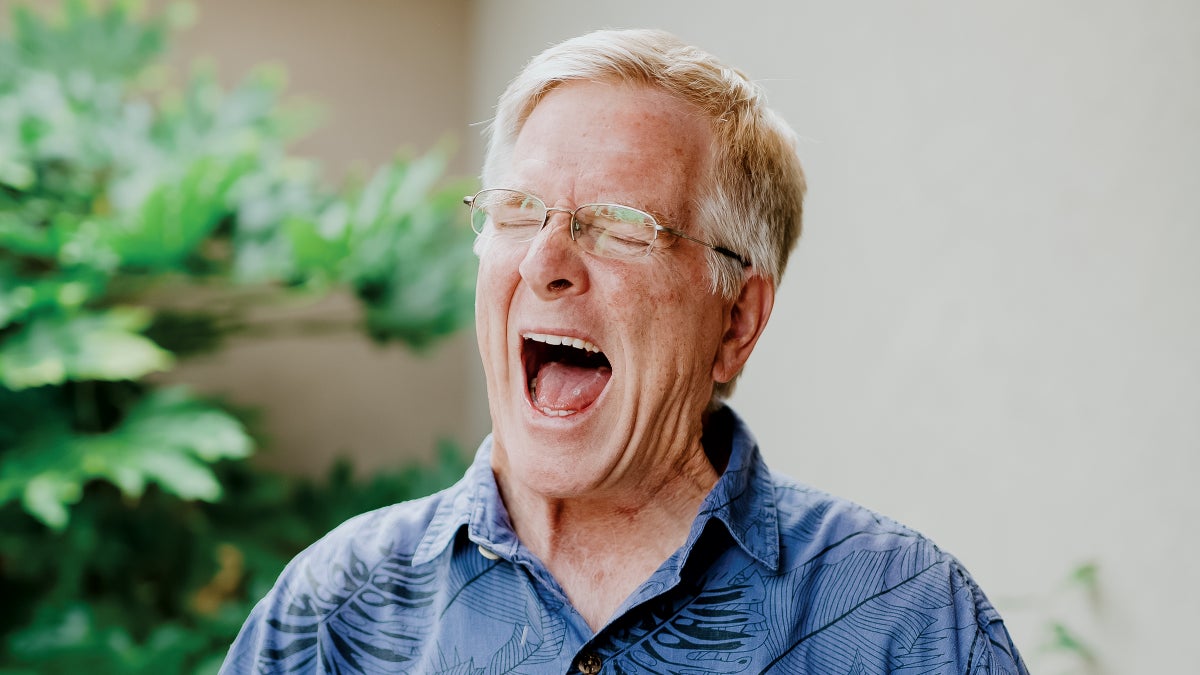
For more than four decades, Steves has guided Americans through the art, food, and culture of Europe, first with his bestselling guidebooks, then as host of his long-running PBS show, Rick Steves’ Europe. But lately, the seventy-year-old travel expert has fallen for a different kind of journey: long-distance hiking. From the Tour du Mont Blanc to the Alta Vias in the Dolomites, Steves now prefers alpine trails and mountain huts to museums and city squares—and he thinks you will, too.
The Hike That Hooked Him: In September 2021, I went on a six-day, sixty-mile trek on the Tour du Mont Blanc. Here I am, supposed to be this expert on European travel, and I’ve never done a multiday hike in the Alps. I loved the rhythm of my feet on the trail. It’s therapeutic. It was something totally new to me, and now I want to tell everybody what a great travel option it is.
On His Most Recent Adventure: This past summer we did the Bernese Oberland Traverse. I wanted to link together some of the most venerable lodges in the Eiger and Jungfrau areas. I used Grindelwald as the springboard and hiked deep into a valley. At one point we were on a ridge high above, looking at lakes stretching out [below]. We heard the alpenhorns blowing and knew that coffee and schnapps would be served at the hut. It was enough to make a Lutheran raise his hands to the sky to praise God.
The Next Hike: This summer we’re doing a one-week hike along the Alta Via routes in the Dolomites. I’m still a fair-weather hiker, so I don’t want to sleep outdoors. I’ll stay in the rifugios and huts along the way.
How Hiking Helps Him at Age Seventy: It forces you to get in shape before the trip. My body feels stronger on a hiking trip. My legs and of course my lungs feel better, even my voice is stronger. It’s an intangible value to be out there.
His Secret to Enjoying a Hike: Hire a sherpa service to take your bag from one hut to the next. That way you can just hike with your day bag and hiking poles and get lost in nature without thinking about the weight on your back. I’m not looking to impress anybody with how heavy a pack I can carry, and neither should you.
Advice Travelers Want from Him: Our focus isn’t on hotels as much as it used to be, and I think that’s because of Airbnb. Advice on eating is more important than ever. Every night in Europe I’m out there for four hours checking out restaurants, because people want to know what’s good. People also want to know the nitty-gritty like how to navigate public transportation, and whether a place requires reservations. After COVID, a lot of the greatest sites in Europe expect you to reserve a spot. In Amsterdam alone, the Van Gogh Museum, Anne Frank House, and some of the best restaurants all required this.
Why Instagram Influencers Can’t Replace Travel Experts: I look on social media and I see people having a wonderful time showing off how great their trip is, but I don’t think it’s great for other people to plan their trips off of that. There’s a ton of information online but it’s all crowdsourced. So, all of a sudden anyone who has traveled to Paris can be the expert on where to get the best hot chocolate. But nobody is asking how many places did they try? Because the answer is usually one. There are a lot of amateurs sharing travel information out there, and there’s nothing wrong with that, but do these people know how to tell you how to best use your valuable time in Florence? I think that’s why guidebooks are still here, in fact they are growing. I’m selling more guidebooks than I’ve ever sold in my life, over one million a year. It’s because we go there—my team and I spend 400 days of research time in Europe every year to update the books. Americans have the shortest vacation time in the free world. Time is a resource. And that’s why we want expert advice.
The post 7 Questions with Rick Steves, Europe’s Most Famous Travel Guide appeared first on Outside Online.











